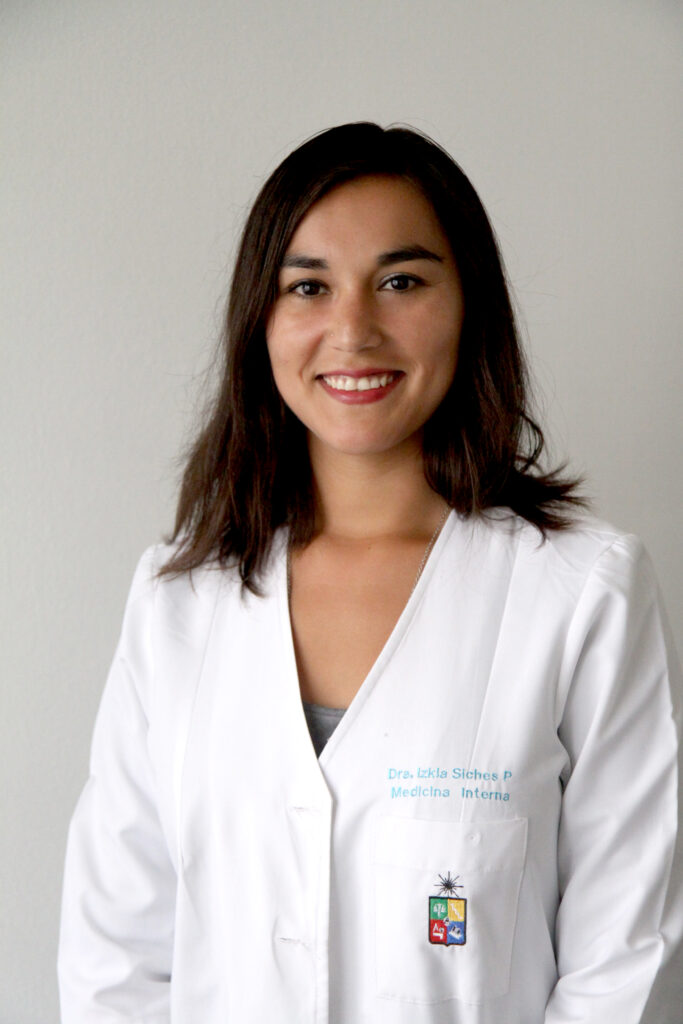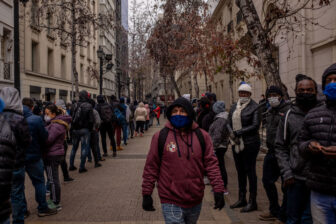In the race to immunize people against COVID-19, Chile has emerged as not just a regional, but as a global leader, vaccinating a million people a week since Feb 3. As of Feb. 19, Chile had vaccinated 15.03 out of every 100 people, according to data compiled by the Our World in Data project at the University of Oxford. Compared to large economies in the region and even overseas, it is an enviable rate.
Chile’s early success has its origins in steps taken last year, when the country participated in several clinical trials and set out ambitiously compiling a diverse portfolio of vaccines, negotiating contracts with AstraZeneca, Johnson & Johnson, Pfizer and Sinovac, with more possible partnerships on the horizon. As of Feb. 15, Chile had ordered some 88.4 million doses – enough to fully vaccinate its population twice, assuming all the orders are fulfilled. Officials are also working with the World Health Organization through its COVID-19 Vaccines Global Access initiative (COVAX) which aims to get vaccines to countries who need them.
Officials have set a goal to have 80% of the country fully vaccinated in the first half of the year. In a conversation with AQ on Feb. 19, Dr. Izkia Siches Pastén, the national president of Chile’s Colegio Médico, an influential medical union, expressed confidence that Chile’s vaccination infrastructure would keep the country at its impressive pace.
AQ profiled the 34-year-old Siches last April as the face of a “a new generation of leaders emerging during the coronavirus outbreak.” As a member of Chile’s COVID-19 Social Roundtable, she has helped shape the country’s response to the pandemic. In February, TIME named Siches to their Time 100 Next list of emerging global leaders, and polls have ranked her as one of Chile’s most popular leaders. Siches has even been floated as a potential presidential candidate.
The interview has been edited for clarity and length.
AQ: Chile has set a goal of vaccinating five million people by the end of March. Do you think Chile is on track to meet that goal?
Izkia Siches: We’re at two and a half million who have now received the first dose. From a logistics’ standpoint, by all means we’ll be able to meet the goal. We’re vaccinating a million people a week. The big question is whether we will have enough shipments. But today, Feb. 19, the president announced that four million doses will arrive next week. That puts Chile close to nearly eight million doses, enough to ensure that an important percentage of the population is vaccinated with both doses. If we keep getting the vaccine shipments, I think we can reach five million people vaccinated in March.
AQ: Is there a main factor that explains why Chile has been able to vaccinate so many people in such a short period?
IS: One factor has to do with Chile’s primary healthcare system and the history of Chile’s vaccination program. Vaccines in Chile are universal for both public and private sector beneficiaries, and they’re facilitated by a national immunization registry. No matter where you get vaccinated in Chile, you remain in that same platform. This allows us to have a real-time count and helps ensure first and second doses are spaced out.

AQ: Chile participated in several vaccine trials last year. Was that a strategic decision, and do you think it helped Chile later access vaccines?
IS: Yes, that was a strategic decision made by members of the Chilean scientific community that collaborated in studies led by Moderna, AstraZeneca, CanSino, Pfizer and Sinovac, with these same scientific groups securing agreements with the laboratories. Chile has not closed itself off to any vaccination strategy. In fact, Chile is currently evaluating agreements for the Sputnik V vaccine, from Russia’s Gamaleya Institute.
AQ: Based on your experience, what steps can leaders in other Latin American countries take to achieve what you have achieved?
IS: There are some platforms that we already had, which benefited us, and which other countries in Latin America might not have, like an electronic national immunization registry. I think the chief constraint on Latin American countries has been their limited access to the vaccine. The medical community and the global political community should address how there will be more equitable distribution.
AQ: The first vaccinated Chileans have largely received the CoronaVac from China’s Sinovac. Have you seen a skepticism toward this vaccine and around vaccines in general?
IS: Public opinion has been more favorable toward vaccines from the European Union and the United States – two references that Chile has long looked to – like from Pfizer, AstraZeneca and Moderna. However, given the global supply problem, Chile decided to seek out contracts with multiple companies and laboratories. Chile has also made agreements to collaborate with other countries, like through COVAX. For us the issue of buying from China hasn’t been that complicated given the nature of these vaccines – they involve an inactivated virus – and that Chile generally buys vaccines from China.
Chile gets its seasonal flu vaccine from Sinovac, so I think this has been reassuring, along with the publication of phase 1 and 2 trials. Nevertheless, there was still some doubt, above all because we didn’t have too many large-scale phase 3 trials reviewed in international publications. But Chile’s public health institute certified the vaccine for use, and the medical and scientific communities back the government’s decision.
AQ: Is there an element to Sinovac’s vaccine that has attributed to Chile’s success vaccinating so many people?
IS: One is the storage method, undoubtedly. Pfizer requires storage in super cold units that keep at -70 degrees, which in Chile we do not have. Chile’s territory also brings limitations – it is a very long country. Sinovac’s vaccine requires very simple storage mechanisms from 2 to 8 degrees Celsius, helping it be dispatched across the country without a problem, from Arica to Magallanes to Tierra del Fuego. All healthcare centers have a refrigerator for vaccines because of our national immunization program.
AQ: Do you think that the issue of inequality, which has been such an important topic in Chilean society in recent years, has played a role in the vaccination process?
IS: It required much more caution from Chilean authorities. I think that after the social uprising our president understood that he, for example, couldn’t get vaccinated before other Chileans. In fact, one of his gestures, which I think is a redeeming one, was that the president did not get a symbolic vaccination. Rather he had to wait in line like everyone else and he got vaccinated when they vaccinated people in his age group, and not before.
AQ: How have the private and public sectors collaborated in the vaccination process?
IS: It’s been orderly. When healthcare workers began to be vaccinated, there was no distinction between public healthcare workers and private healthcare workers, unlike what has been seen happening in Mexico, for example. There has been some pressure from different sectors of the economy to get more involved in the vaccination process, but for now, the great weight of vaccination has been carried by Chile’s public sector.
AQ: What are some of the challenges Chile’s vaccination process will face in the coming weeks and months?
IS: The first has to do with ensuring that shipments arrive at the rate that we’re vaccinating people, at more than a million a week. That requires a continuous flow of new batches of vaccine. And the second has to do with clarifying which groups get priority. To the point, our perspective at the doctors’ union is to first ensure people over 60 and those with chronic illnesses. After that, how you prioritize the general population gets more political. Who do you vaccinate first – transport workers, teachers, dock workers, business people, essential workers? It is a definition that in our opinion has to be very transparent, so that there is no perception of people skipping the line, and whose privilege gets them access to the vaccine. I believe that the Peruvian phenomenon has caught the attention of leaders around the world. The perception that there is justice in citizens’ access to healthcare is extremely vital. If we all start to skip the line, it is very difficult to maintain public vaccination policies.






